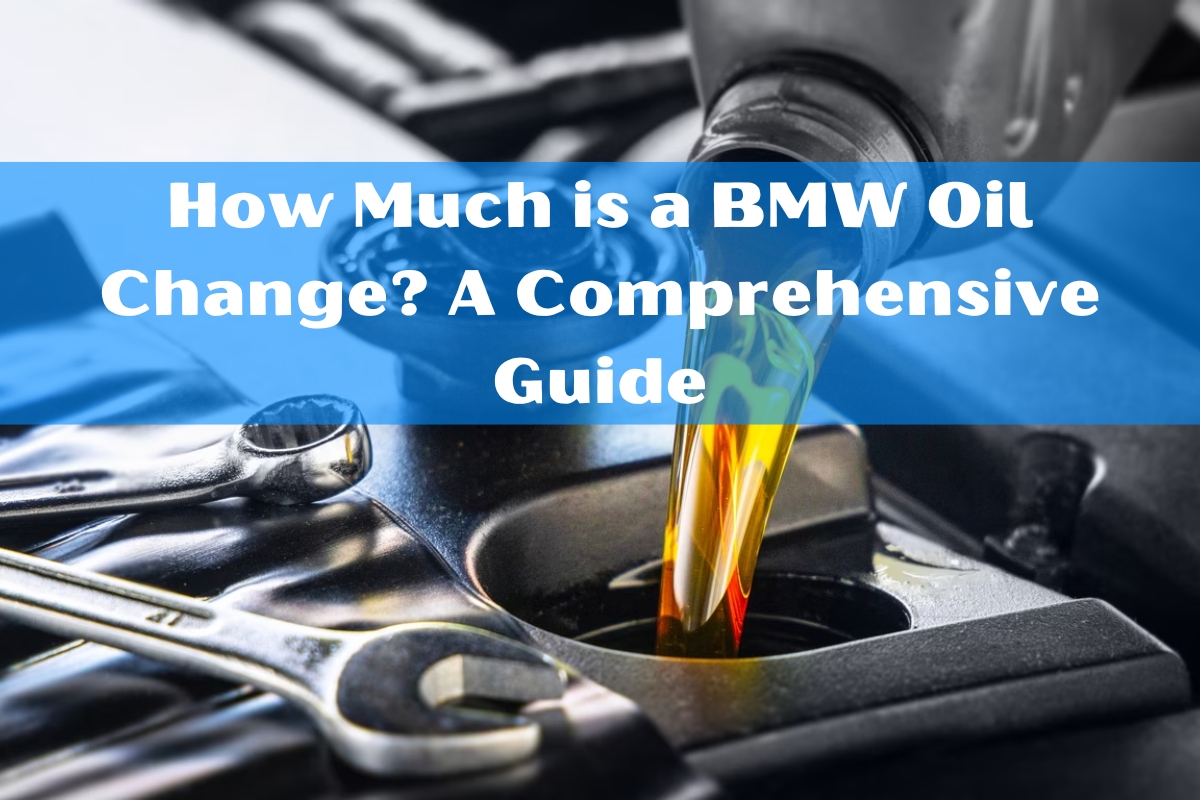How Much is a BMW Oil Change? A Comprehensive Guide

How much does a BMW oil change cost? This is a common question that many BMW owners have, especially when their vehicle is no longer under the manufacturer’s warranty. BMWs are renowned for their luxury, performance, and engineering excellence, but this premium quality often comes with higher maintenance costs compared to more mainstream automotive brands.
In this comprehensive guide, we’ll dive deep into the typical costs associated with getting an oil change for your BMW, the factors that can influence the price, and even explore the option of doing it yourself. We’ll also cover the manufacturer’s recommended oil change intervals, the benefits of regular maintenance, and some BMW-specific service plans that can help you manage those costs. By the end, you’ll have a clear understanding of what to expect when it’s time to get your BMW’s oil changed.
Factors Affecting BMW Oil Change Cost
The cost of an oil change for a BMW can vary quite a bit, depending on several key factors:
BMW Model and Engine Size
One of the primary drivers of oil change cost is the specific BMW model and engine you have. Larger engines, like those found in the X7 SUV or M-series performance models, typically require more oil (often 6-10 quarts) compared to smaller 4- or 6-cylinder engines. The type of oil specified by BMW for your particular model can also impact the cost.
Location and Service Provider
Where you get your BMW serviced can also make a big difference in the overall cost. Dealership service centers tend to charge more for labor and use genuine BMW parts, while independent mechanics or quick lube shops may offer lower prices, though they may use aftermarket components.
Parts and Fluids
The cost of the oil itself, the oil filter, and any other related parts and fluids required can vary significantly. Genuine BMW parts and synthetic oils designed for their vehicles will generally be more expensive than generic options.
Labor Costs
Labor rates can also play a role, with dealership mechanics typically charging higher hourly rates than independent shops. However, dealerships may complete the service faster due to their specialized equipment and training.
Taxes and Fees
Finally, don’t forget to factor in any applicable sales taxes, shop supplies, and miscellaneous fees that may be added to the final bill.
Average BMW Oil Change Costs
Now that we’ve covered the key factors, let’s take a look at the typical costs you can expect for a BMW oil change:
Dealership Oil Change Costs
At a BMW dealership, the average cost for an oil change typically ranges from $135 to $175. Of this, around $90 to $110 will be for the parts and fluids, with the remaining $45 to $65 going towards labor.
Independent Mechanic Oil Change Costs
If you opt for an independent mechanic or oil change shop, the cost can be a bit lower, usually between $75 and $120. The parts and fluids will likely be in the $60 to $100 range, with labor costing $15 to $20 less than a dealership.
DIY Oil Change Costs
For those willing to do the oil change themselves, the total cost can be as low as $60 to $100. This includes purchasing the oil (approximately $45 to $60 for 6-7 quarts of BMW-approved synthetic oil) and a new oil filter ($15 to $20). The tools required, such as an oil filter wrench, can be borrowed or purchased for a one-time cost.
Doing a BMW Oil Change Yourself
Changing the oil in your BMW yourself can be a cost-effective option, but it’s important to have the right tools and follow the proper procedures to ensure the job is done correctly. Here’s a quick overview of the DIY oil change process:
Tools and Equipment Needed
- Jack and jack stands (or ramps) to safely raise the vehicle
- Oil drain pan to catch the old oil
- Appropriate oil filter wrench
- Torque wrench to properly tighten the drain plug
- New oil filter and the correct type and quantity of motor oil
The DIY Oil Change Process
- Park the BMW on a level surface and engage the parking brake.
- Locate the oil drain plug, typically located at the bottom of the oil pan, and place the drain pan underneath.
- Using the correct size wrench, loosen and remove the drain plug, allowing the old oil to drain completely.
- Once drained, replace the drain plug and tighten it to the proper torque specification.
- Locate the oil filter, usually accessible from the top of the engine, and use the oil filter wrench to remove it.
- Apply a thin coat of new oil to the gasket of the new filter, then screw it on until secure.
- Unscrew the oil fill cap and pour in the recommended amount and type of new oil, checking the dipstick to ensure the level is correct.
- Replace the oil fill cap, lower the vehicle, and start the engine to check for any leaks.
- Dispose of the old oil and filter properly.
Advantages and Disadvantages of DIY
The main advantage of doing a BMW oil change yourself is the potential cost savings, as you can avoid the labor charges of a professional service. However, it does require the proper tools, a safe work environment, and the knowledge to perform the task correctly. Dealerships and mechanics also have the specialized equipment and training to ensure the job is done to BMW’s exact specifications.
BMW Oil Change Interval Recommendations
BMW recommends changing the oil and filter every 10,000 miles or 12 months, whichever comes first. This is generally longer than the oil change intervals recommended by other automakers that use conventional motor oil.
However, some experts suggest changing the oil more frequently, around every 5,000 miles or once a year, to help extend the engine’s service life. Factors like driving conditions, towing, and frequent high-speed driving can all impact the oil’s lifespan and require more frequent changes.
Benefits of Regular BMW Oil Changes
Regularly changing the oil in your BMW provides several important benefits:
Improved Engine Performance
Fresh, clean oil helps reduce friction and wear on critical engine components, allowing your BMW to perform at its best.
Increased Engine Lifespan
Proper lubrication and removal of contaminants prevents premature engine degradation, helping your BMW last longer.
Better Fuel Efficiency
Well-maintained oil contributes to reduced engine drag, which can translate to improved fuel economy.
Environmental Protection
Disposing of used oil and filters properly helps minimize the impact on the environment.
BMW Maintenance Plans and Services
To help BMW owners manage the costs of regular maintenance, the company offers a few different service plans and options:
BMW Ultimate Care
This comprehensive plan includes scheduled maintenance, like oil changes, for 3 years or 36,000 miles, along with 24/7 roadside assistance.
Dealership “Value” Oil Change Services
Many BMW dealerships offer a discounted “value” oil change service for vehicles out of warranty, typically ranging from $100 to $120.
Prepaid Maintenance Plans
Some dealerships sell prepaid maintenance plans that cover a set number of oil changes over a specific timeframe, often at a discounted rate.
These programs can help provide peace of mind and predictable maintenance costs for BMW owners, though the upfront investment may not be suitable for everyone.
Conclusion
Owning a BMW comes with many rewards, but the cost of maintenance, including regular oil changes, is something every owner must consider. By understanding the various factors that influence the price, as well as the benefits of staying on top of your BMW’s oil changes, you can make informed decisions about how to best care for your luxury vehicle.
Whether you choose to have your oil changed at a dealership, an independent mechanic, or tackle the job yourself, the key is to follow the manufacturer’s recommendations and use only BMW-approved parts and fluids. This will help ensure your BMW continues to deliver the exceptional performance and longevity it’s known for.
So, the next time your BMW is due for an oil change, refer back to this guide to help you determine the most cost-effective and prudent course of action. Proper maintenance is the key to getting the most out of your BMW ownership experience.






